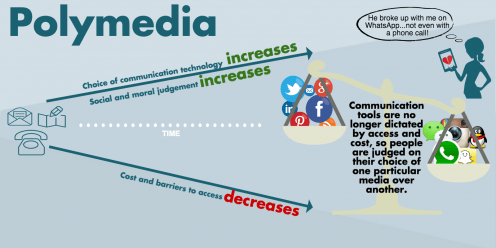See you later, from the Why We Post team
By Daniel Miller, on 28 April 2017
This is our end-of-project blogpost, after five years of our ERC-funded project Why We Post. So, what has been achieved?
1) In the light of a comparative study of nine fieldsites and our eleven books of evidence, we hope people will fully appreciate that social media is always content, and content is always the local product of local social and cultural forces. The approach that extrapolates from an experiment to make claims regarding a generalisable thing called ‘social media’, does not work.
2) We have created a new digital ecology of research dissemination for effective global education. Our initial Open Access books have already achieved 183,000 downloads including 2406 in the Philippines, 1395 in Ethiopia and 1147 in Pakistan. We have taught more than 14,000 on our MOOC. Our combination of accessible writing, short videos, social media and storytelling is what makes this global reach possible. We are also adapting our material for use in schools. Our books are currently being translated into Chinese, Hindi, Italian, Russian, Portuguese, Spanish and Tamil.

3) We have shown that anthropology can be the very best method for exploring this most dynamic contemporary phenomenon. Long-term ethnography and participant observation enables researchers to build deep relationships with the people they study, providing access to intimate areas of life such as private spheres of social media, understood in the full context of offline life.

4) We have developed theoretical ideas and original insights for understanding social media, including ‘Scalable Sociality’ as a new definition of social media. By this we mean that social media provides greater control in communication over both the degree of privacy and size of group, when compared with previous forms of communications media. We have applied the theory of Polymedia, which describes how media choice has become more of a social and moral issue instead of one of cost and access. Finally, we have extended our understanding of what it means to be human with the Theory of Attainment, which includes all the things we have the capacity to be in the future. So a new technology such as social media simply allows us to attain something of that capacity, which was already latent in merely being human.

5) We have tried to bring balance to debates that reduce analysis of social media to whether it is a ‘good’ or ‘bad’ thing by showing how developments are almost invariably contradictory, such as being both good and bad for education, or representing movement towards and away from individualism. You can explore our discoveries on our website and see exactly how our cross-cultural scholarship make those contradictions clear.
Finally, thank you to everyone who has followed the progress of this project via this blog. We have appreciated your questions, challenges, and support. If you have not yet taken our free online course, the next run starts 12th June. Do sign up – we look forward to discussing the uses and consequences of social media with you there!
NOTE the Why We Post website will remain and in addition we will publish occasional announcements of developments on this blog. Several of us will be involved in a new five year project starting in September 2017 on Smartphones, Smart Ageing and mHealth which will have an associated blog.
 Close
Close




